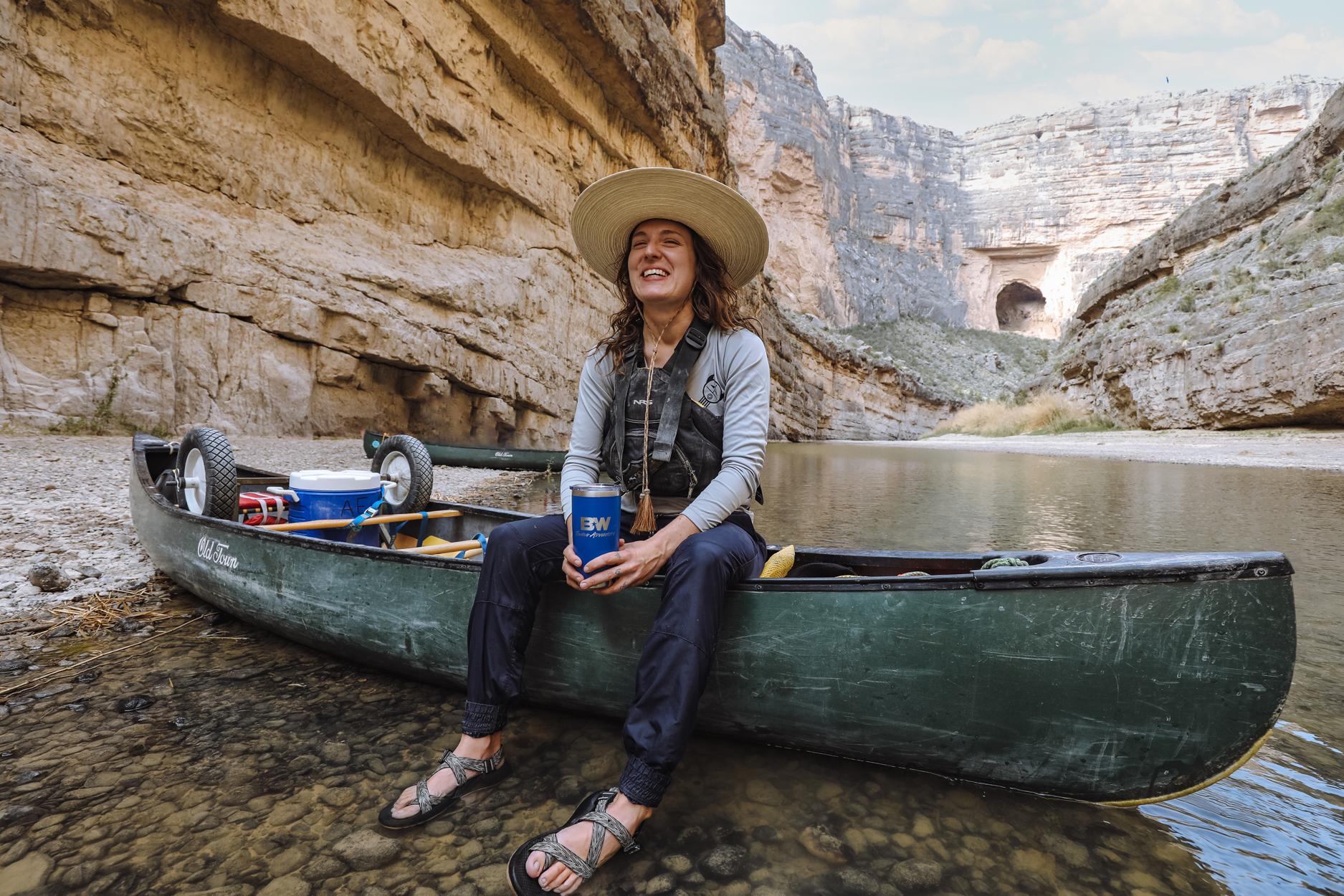After graduating college, Sam Karas came to the conclusion that she couldn't dedicate her future to working in a climate controlled room. Instead, her interests led her to the border of far west Texas—with its enthralling landscape and harsh lifestyle—where she's opted to devote her life to being a guide on the Río Grande River.
He crossed the river from the little Mexican village you can see from the boathouse, or maybe that’s just the story I tell because he was covered in mud when we found him. He was wet and trembling and quick to show his wormy belly, with big satellite dish ears and one white sock. I named him Flaco, slang for skinny. My buddy Kristian says I should have named him Chupa, after the local thin-legged goatsucking monster. The vet says he’s probably part Australian Shepard, part Chihuahua. He might get to be twenty pounds, but probably won’t.

Charlie didn’t like the dog, not at first. Charlie is my boss. Around these parts you don’t need to use his last name, you can just say you work for Charlie. I’m a river guide on the Río Grande in the Big Bend of far west Texas. This place is not quite Texas and not quite Mexico, never quite tamed by anybody. It’s a land of extremes, the terrain rougher than anywhere else I’ve ever known. I take people camping on the river in canoes, though a month or two out of the year when the river swells, I’ll row a raft. I haul a boat trailer back and forth on the steepest, windiest road in the whole state.
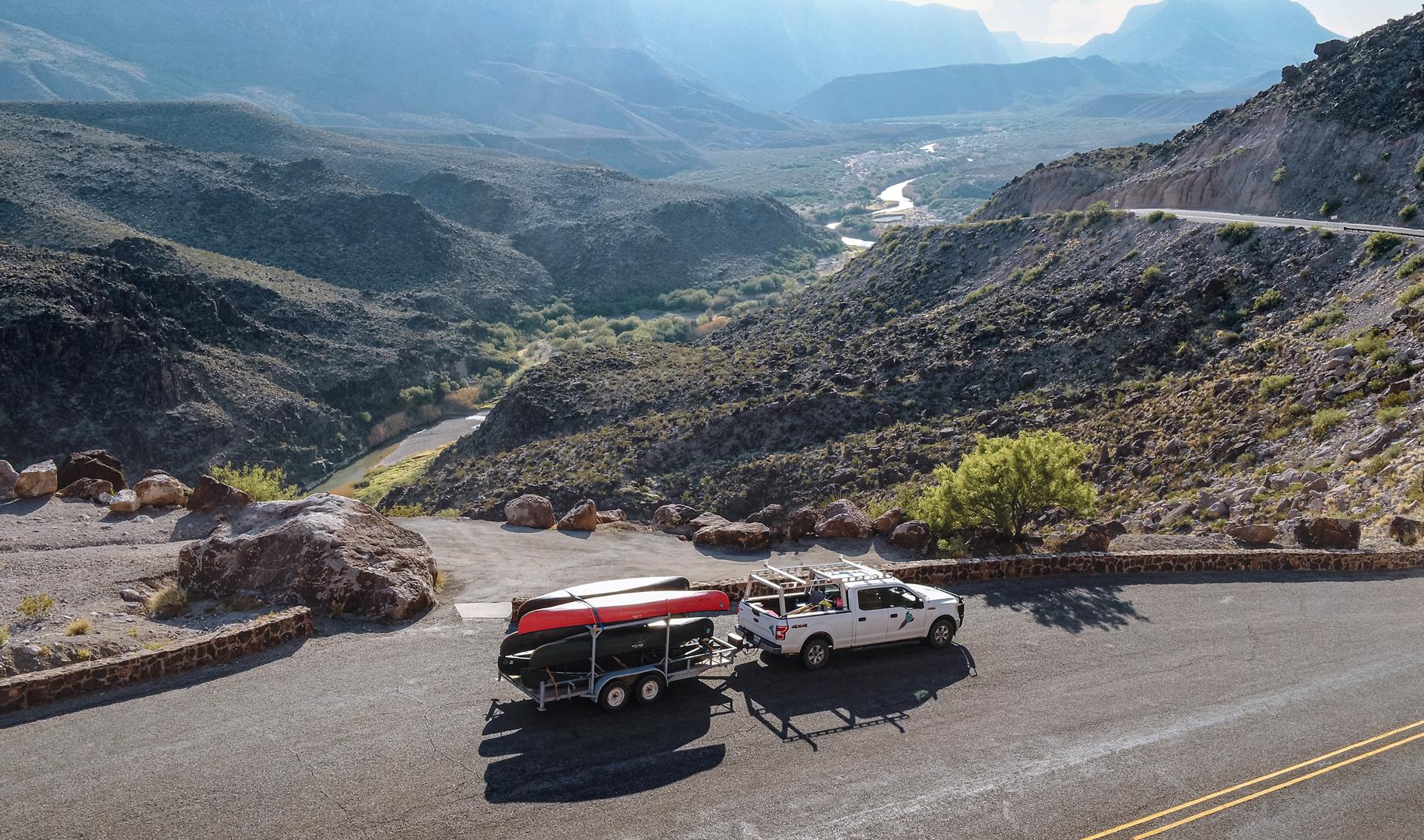
I live in Polvo, which used to be a town and isn’t anymore. There are no other businesses for twenty miles except a barn you can pull up to, honk, and grab a twelve pack of Lone Star or Bud Light. That’s not to say it’s a forgotten place. People have lived in this valley continuously for ten thousand years. The boarded-up shops by the side of the road aren’t a death. They’re just a little lull. To live here now is to be reminded of how we will all be swallowed up by time and dust.
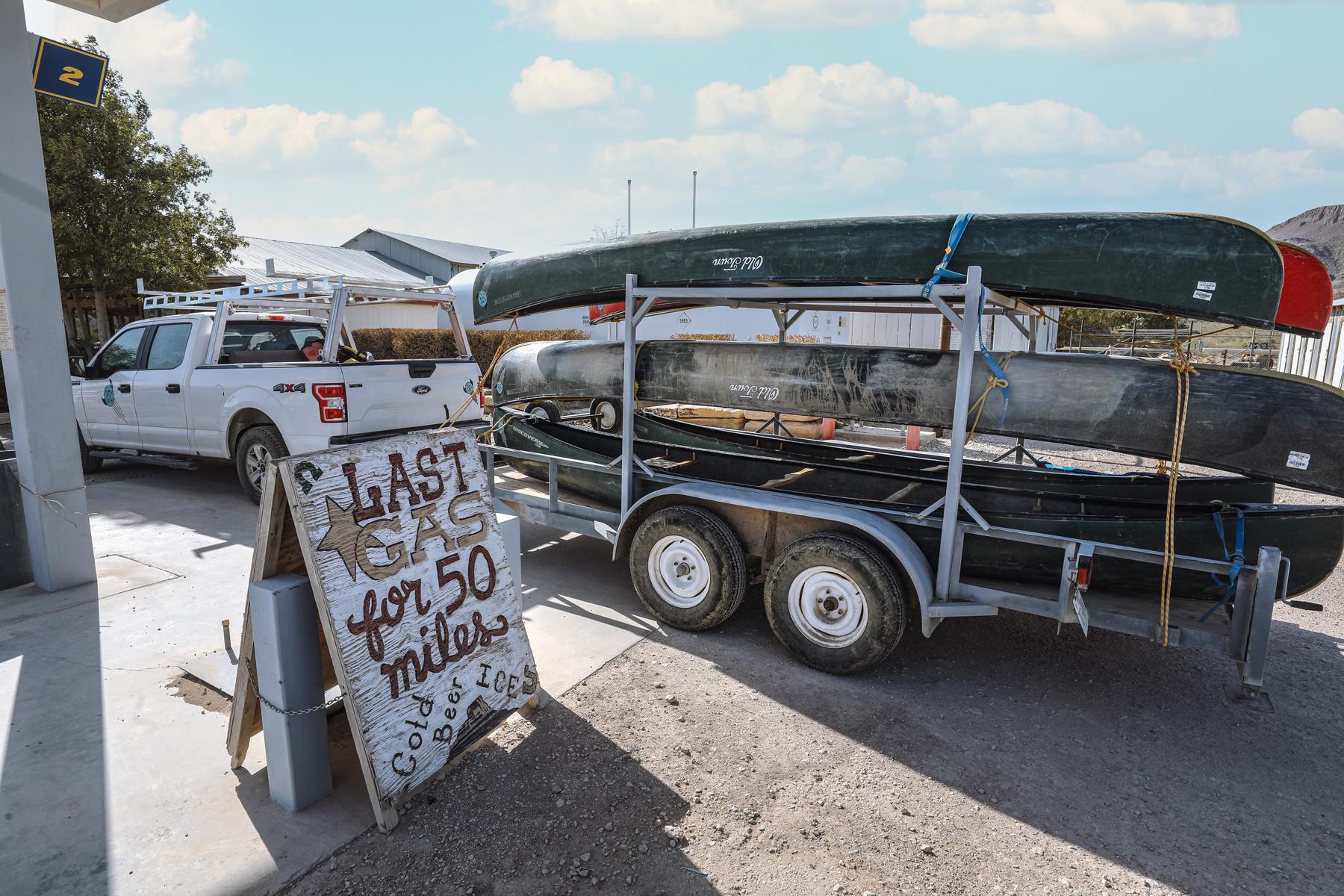
That’s what that name––Polvo––means. Dust. The desert is callous. Whoever gave this place its name realized that too. I could die in a landslide. I could die in a flood. I could die the next time I walk out the door and forget my water bottle.
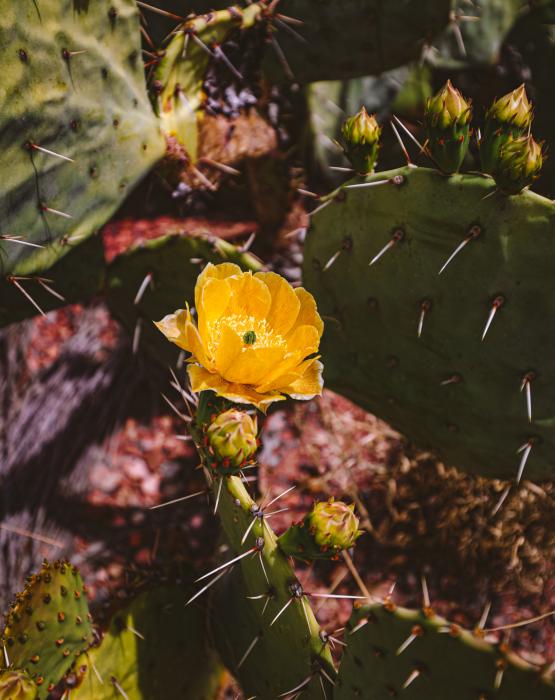
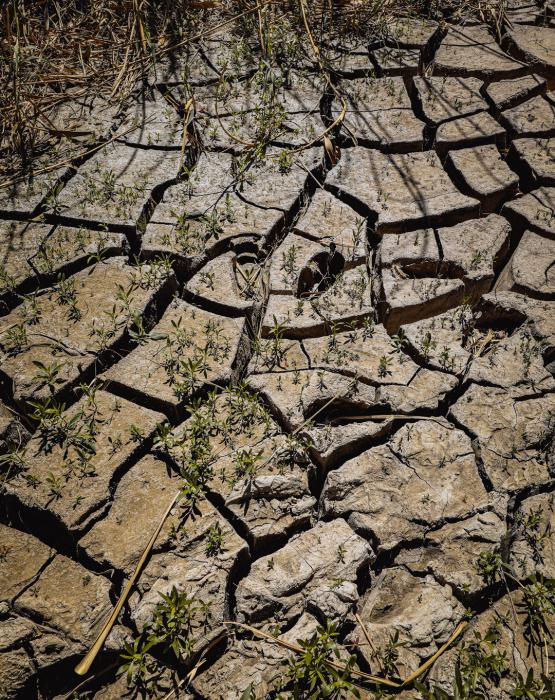
The river is different. The river is a living thing. Down here, wherever there are birds and trees and little mud houses, the river is the reason. They call the end of a paddle the blade. When I cut through the water I feel its power. To run the river is to respect that power and to stare it down, to challenge it.
The first time I ran the Rock Slide––maybe the most famous rapid in the Big Bend––the water was massive, the river pounding against the canyon walls along with my heart. The Rock Slide is more maze than rapid, pocked with schoolbus-sized rocks and complicated webs of current. Misread the water and you can pin against the boulders, your fiberglass canoe suddenly no more useful than a wet leaf. As the roar of the water faded behind me, tears slid down my face into the river, mingling with snowmelt from somewhere deep in the Sierra Madres, with runoff from Marfa and Alpine and Terlingua and the lonesome mountains in between, and carried them hundreds of miles through the spectacular canyons of the Big Bend and the bustling cities of the lower Rio Grande Valley, all the way to the sea.
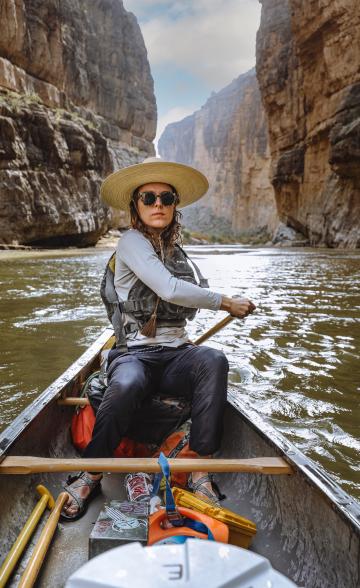
In the river everything dissolves.
I went to school for many years to be a poet. For most of my life I thought someday I would be an English professor. I would wear a leather-elbow jacket on some neo-Gothic campus and have lofty conversations about truth and beauty while quietly accumulating a pension. That changed when I was introduced to the great love of my life, the Big Bend.
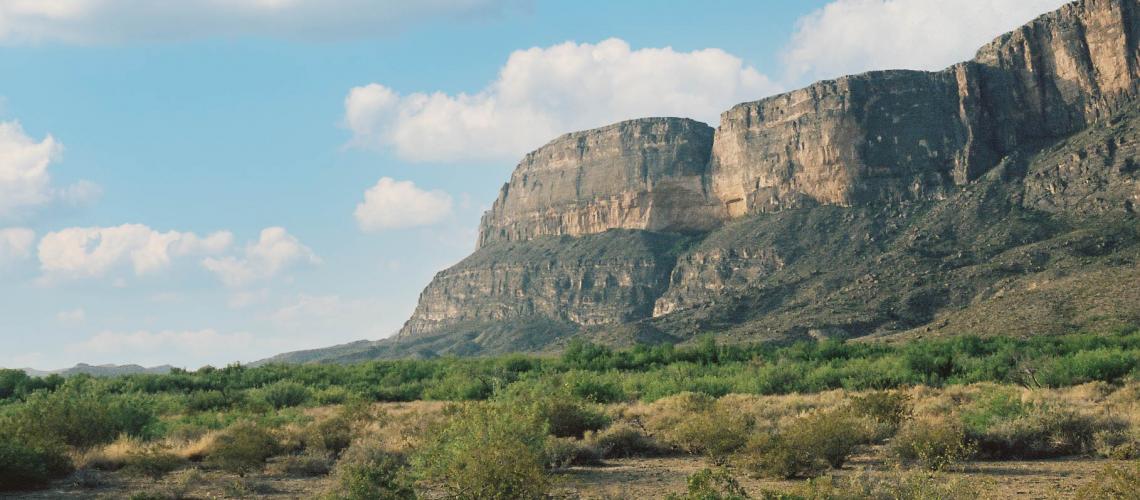
Charlie said a beautiful thing once: he wants to settle down here and die, and not too soon. I want to settle down here and die, and not too soon. I’ve always thought that settling down would mean a Big Bend man, a Big Bend house, and a Big Bend dog. The Big Bend men––spittin’, cussin’, gun-totin’ loners of the mold Waylon & Willie warned of––come & go.
Years of overdraft fees, hand calluses, and a blown-out shoulder later, there’s a Big Bend house, but it doesn’t belong to me. Its roof is held down by a pair of truck tires. It’s a luxury I have a flush toilet, but it’s in an outhouse that gets so startlingly hot on 120-degree summer days I end up doing much of my business outside anyway. My cell phone doesn’t work here, so I have a landline only my boss calls. When it went out, I had to explain to the phone company that the place looks abandoned, but somebody lives here. I live here.

That’s Polvo style, my buddy Tanner said when I complained about all of this. Polvo style is living in the middle of nowhere and making do with what you have. From the outside it looks busted, and it’s nothing fancy. But it works just fine.
At least I can say now I have the Big Bend dog. He’s not the mean-looking street pit I’d always dreamed of, but I hold him sometimes and think about how similar we are. How our smallness betrays our toughness. How we both came out of the river to Charlie’s and decided this was our place.
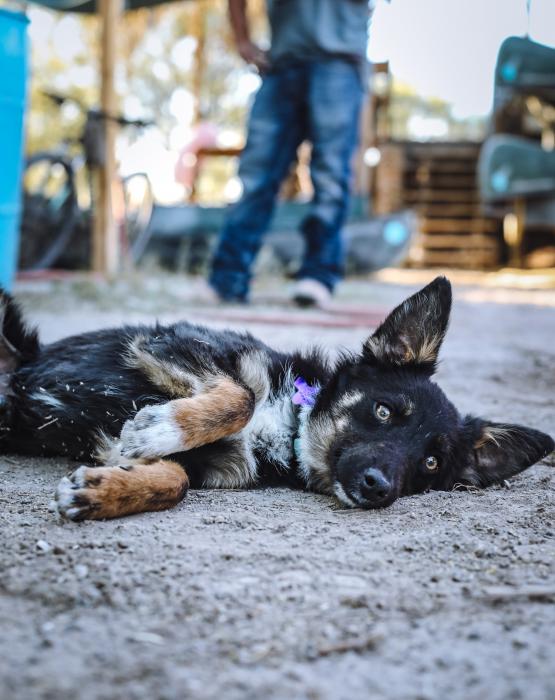
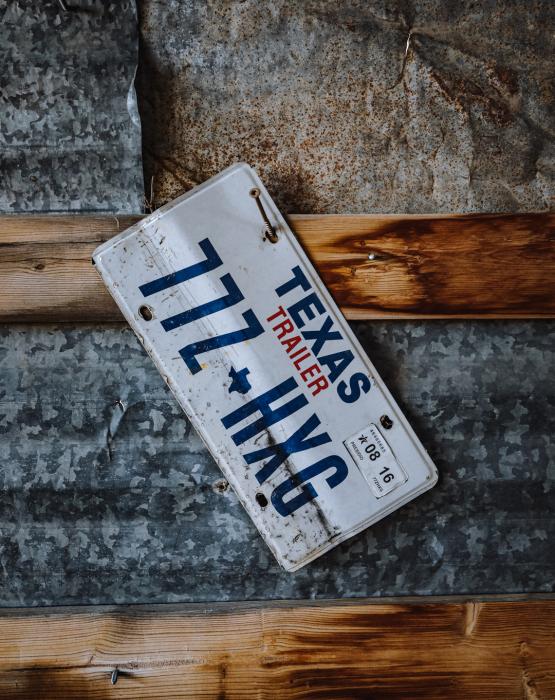
I don’t have a lot, but I have the place. I have the stars and the mountains and the big blue sky and the smell the creosote gives off when it finally rains. I have the river and everything she has to teach me. I’m not from here, and it’s a long story how I ended up living in a ruin in a town on the border that’s so small it doesn’t technically exist. Still, my life feels Polvo style. From the outside it looks busted, and it’s nothing fancy. But it works just fine.
Story written by Sam Karas, River Guide
